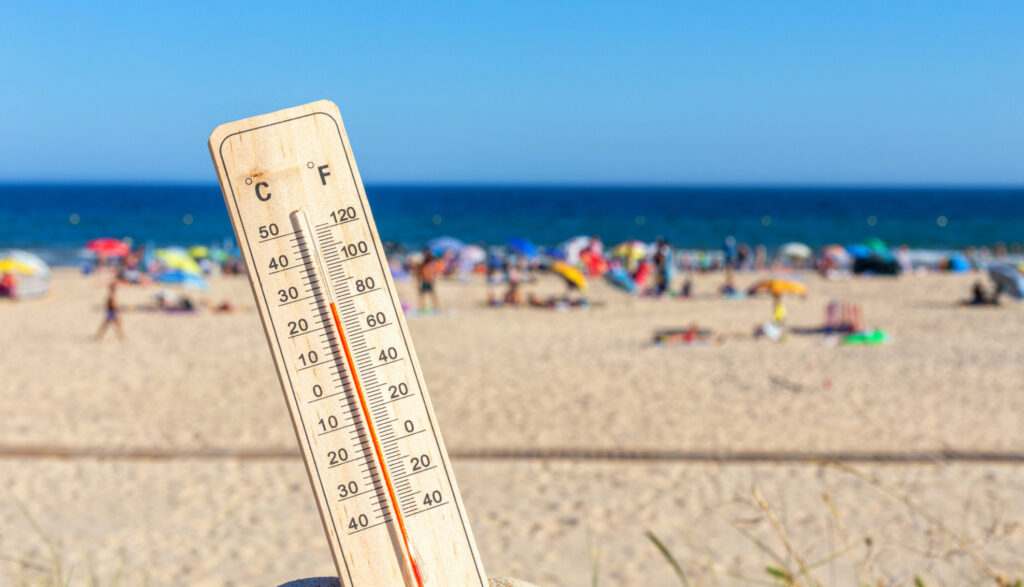Travellers heading to Europe this summer are being urged to prepare for unprecedented heat.
Water temperatures in parts of the Mediterranean Sea are currently up to 9°C above the seasonal average, with the most severe warming concentrated in the western basin south of France. This marine heat is feeding extreme humidity northward and preventing overnight temperatures from dropping, compounding the discomfort and health risks.
Spain and Portugal have borne the brunt of the early summer surge. On Sunday, the town of El Granado in Spain reached 46°C, the country’s hottest June temperature ever recorded, according to AEMET, Spain’s national meteorological agency. Portugal logged a provisional national June record of 46.6°C in the city of Mora, east of Lisbon, as confirmed by the Portuguese Institute for Sea and Atmosphere (IPMA).
n France, heat has spread almost nationwide. Provisional readings from Météo France showed several towns topping 38°C on Monday. Sixteen departments, including Île-de-France around Paris, were under the highest-level red heat warning on Tuesday. As a precaution, the summit of the Eiffel Tower has been closed to visitors, with staff advising tourists to avoid peak sun, remain hydrated, and seek shade whenever possible. The United Kingdom is enduring its second heatwave of the season. Temperatures exceeded 32°C on Monday, straining infrastructure and health systems in a country.
Samantha Burgess of the European Centre for Medium-Range Weather Forecasting described the conditions as exceptional. “The temperatures observed recently are more typical of July and August and tend to only happen a few times each summer. The current June–July heatwave is exposing millions of Europeans to high heat stress”, said Samantha.
Wildfires have already ignited across several regions. In France’s Aude department, nearly 400 acres burned on Sunday. In Turkey, approximately 50,000 people have been evacuated as firefighters battle severe blazes in the western provinces of Izmir and Manisa. Germany is bracing for record temperatures through Wednesday as the heat dome expands eastwards. Meteorologists expect some relief later in the week as cooler Atlantic fronts gradually move in.
Climate scientists warn that these extremes are becoming increasingly common. Europe, the fastest-warming continent, is heating at twice the global average, with human-driven climate change intensifying the frequency, severity and duration of heatwaves and marine heat events.
Top Tips for travellers to stay safe in extreme heat:
- Avoid outdoor activities during peak midday hours (11:00–16:00).
- Drink plenty of water, even if you do not feel thirsty.
- Wear light, breathable clothing and a wide-brimmed hat.
- Use high-factor sunscreen and reapply frequently.
- Monitor official alerts from local authorities and meteorological services.
- Stay in air-conditioned spaces wherever possible.
- Check on vulnerable travellers, such as older adults and children.


